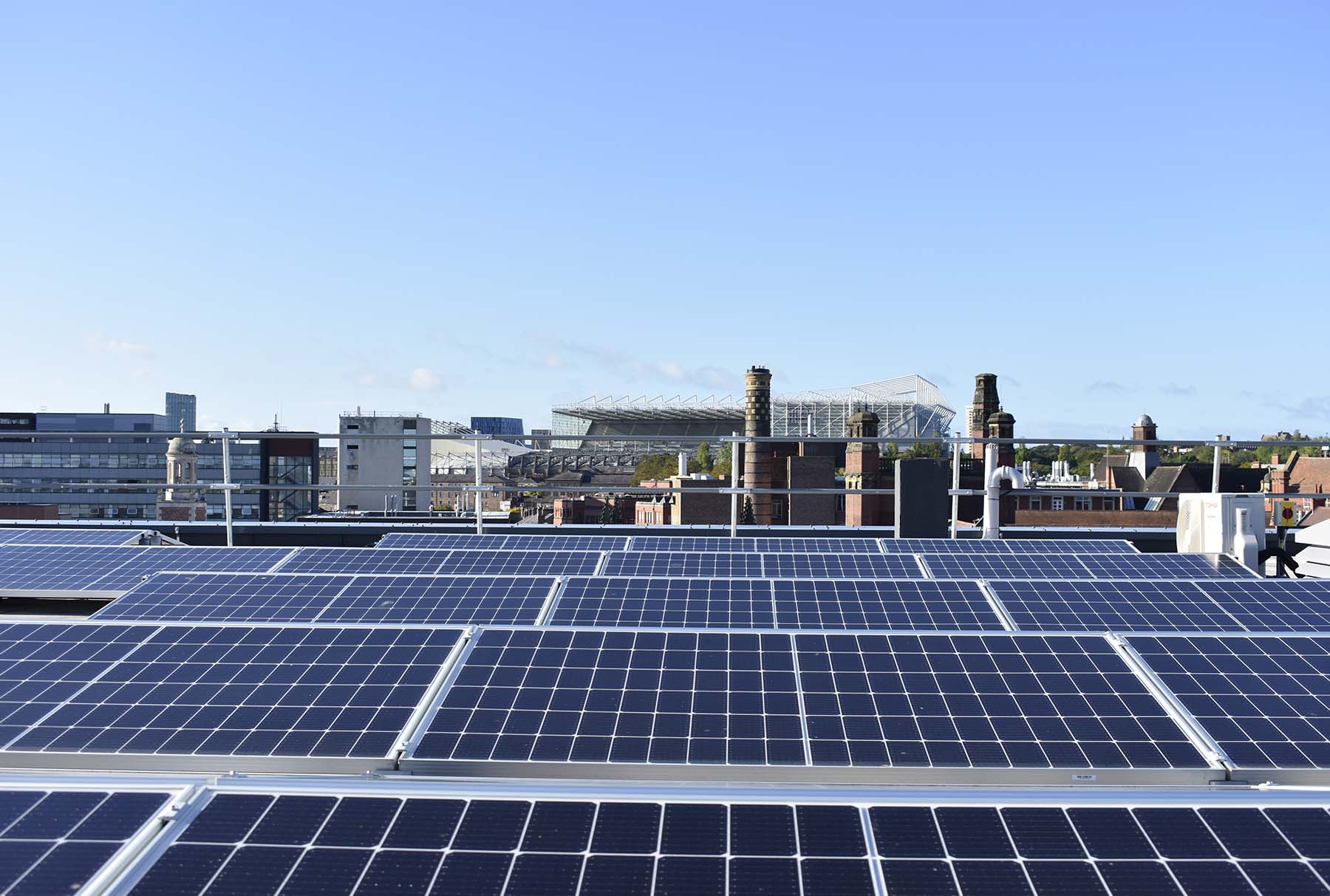Industry, Innovation and Infrastructure
Build resilient infrastructure, promote inclusive and sustainable industrialisation and foster innovation.
UN Sustainable Development Goals
17 Sustainable Development Goals are at the core of the United Nations' 2030 Agenda for Sustainable Development. They represent a blueprint for peace and prosperity that all its member states adopted in 2015.
Find out more about how Newcastle University is working towards these goals to help create a better and fairer world.
Goal 9
Our teaching encourages innovation and our courses have ties to multiple industries.
Our engineering research is diverse and cutting-edge. We encourage and support Living Lab projects.
We have a target of net-zero carbon dioxide emissions by 2030. Achieving this target will involve investing in renewable energy and other technologies to decarbonise and reduce the energy we use.

Net zero by 2030
We have a target to reach net-zero carbon dioxide emissions by 2030. To achieve this we must improve energy performance across the University’s estates and decarbonise our heating and cooling.
We look to energy efficiency innovations to decrease our energy demand. Retrofitting our existing buildings is a key focus of the action plans.
We invest in renewable energy technology on our estate and further afield to decarbonise our energy supply. A current project is the installation of a biofuel combined heat and power unit.
Engineering at Newcastle University
We have a large and diverse School of Engineering at Newcastle University. The teaching and research that takes place in the department has many links to the UNSDGs.
A major capital development project is underway for the School of Engineering. The refurbishment of the Stephenson Building.
This project is the first to use our new Sustainable Construction Specification. It will deliver on decarbonisation objectives of the Climate Action Plan.
Living Lab
Newcastle University encourages and promotes ‘Living Lab’ projects.
Our Urban Sciences Building (USB) at Newcastle Helix was the winner of a Green Gown Award in 2018 for ‘Campus of the Future’. The USB is a building-as-a-lab (BaaL) which:
- utilises renewable energy
- has over 4000 digital sensors to create data which is used in the Urban Observatory
